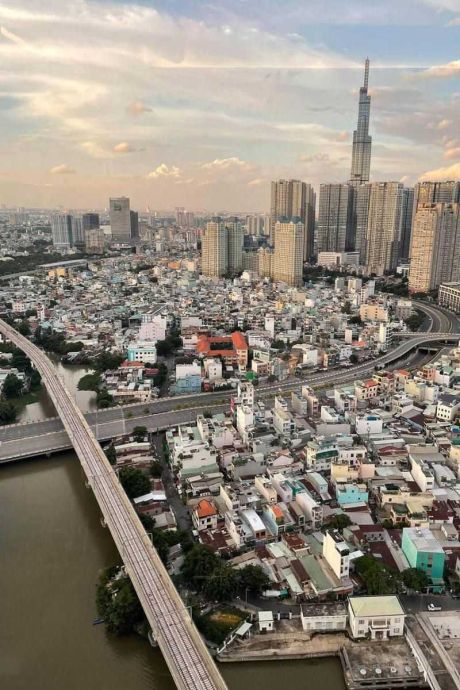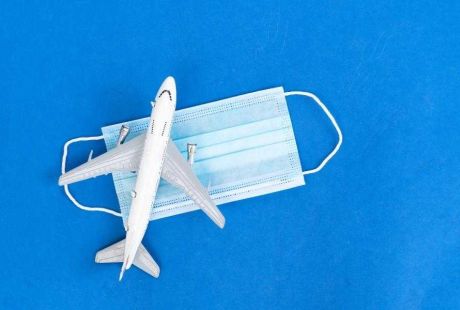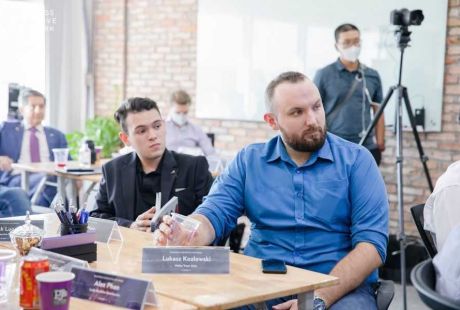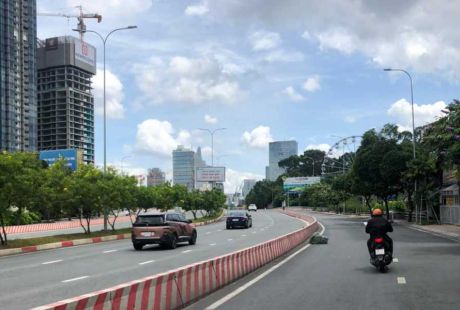Sourcing During Covid Pandemic: Challenges and Solutions
We invite you to read the article by Łukasz Kozłowski, CEO and co-founder of the MakeYourAsia Group, about the expectations related to sourcing in business in ASEAN due to the COVID pandemic.
The ongoing COVID-19 pandemic has entirely transformed the methods of doing business around the world. In addition to the barriers already present before, numerous new ones have appeared, depending on the region, country, and the effectiveness of the localities’ efforts in containing the spread of the pandemic.
The countries of Southeast Asia are no exception to this trend. Their first action, taken at the very beginning of the pandemic was the closure of their borders, effectively bringing all the international traffic to a halt. The region’s countries have not reopened since then, even for short periods of time.
Additionally, local lockdowns massively reduced production outputs of many big producers, as well as the effectiveness of most of the major cargo ports and airports in the region. Consequently, the waiting lists for freight shipping, both air and sea, have grown immensely, thus causing a dramatic increase in shipping prices. All these factors caused sourcing from Asia to become quite a challenging task, as of 2021. The situation on the global market demands inventing and applying new solutions, as well as a remodeling of the now inapplicable business culture. This necessity is especially clear from the perspective of businesses such as MakeYourAsia – an advisor to numerous Polish and other CEE companies, involved in business activities in Southeast Asia, and especially in Vietnam.

Currently, the largest challenges for such companies are the dramatic increase in the freight shipping prices between Vietnam and Europe, as well as the difficulties caused by the inability to travel, effectively disabling the companies’ representatives from building good, direct relations with their Southeast Asian partners.
Just a glance at the two-year freight shipping price history shows how quickly the costs increased from a long-term average of around $1000 per container, to over $10 000 in August 2021.
This dynamic increase in price, combined with delays in container availability and transportation, causes a wide array of difficulties for CEE businesses. To compensate, they have to either reduce their margins or greatly increase the prices of their products, negatively impacting their businesses. The business owners hence either resign from importing the products from Vietnam or move their production directly to Europe or other less-distant regions.
A similar trend, however, can also be noticed among the businesses previously importing products from continental China. Numerous companies, affected by the high cost of transportation, as well its low availability, start to look for alternative locations for their operations, such as Vietnam and other ASEAN countries. Owing to the highly anticipated free trade agreement between the EU and Vietnam (EVFTA), the concept of moving the production here is quite attractive and – above all – viable. Concurrently, new shipping ways are being designed and tested, such as a railway transport route between Vietnam and Europe via China. Unfortunately, as of now, its capacity is much too low to become a feasible alternative to maritime shipping. Due to these facts, the availability of even the most basic Vietnamese export items on European markets will decrease, causing their prices to keep rising.

Meanwhile, another difficulty caused by the COVID-19 pandemic is the closure of the borders of Southeast Asian countries, not only to tourist traffic but to business visits as well. Since March 2020, every person entering Vietnam not only had to be officially invited by a sponsoring entity but also spend two weeks in quarantine. This, naturally, stopped virtually all business traffic between CEE and Vietnam. Other countries in the region followed closely, as they also imposed new regulations and quarantine measures on the arriving travelers.
The intensity of business-related traffic, which was steadily growing in recent years thanks to state-organized trade missions and visits to trade fairs, has now come to a complete stop. All the business activities, so vital for Polish and other CEE entrepreneurs, such as business to business meetings, the possibility of searching for appropriate suppliers by visiting their production plants, as well as building mutual relations and trust between contractors are currently impossible. The only possible way to hold business meetings is doing it online, but as the past year has shown, such events are not particularly effective, and the previously already difficult issues, such as cultural and language barriers become even harder to overcome.
One of the most important values in Southeast Asian business culture is trust and mutual respect between business partners. It is expressed in the form of regular meetings, both formal ones – in conference rooms of individual companies, as well as informal ones, during business lunches and dinners. During such meetings people avoid talking about work, instead, they tell stories from their family life, share travel experiences, and discuss entertainment – what sport is good to engage in, what brand of golf clubs to buy, or who supports which football club. Trust in business contacts, their durability, and resistance to critical situations is built in Southeast Asia in this way. However, this needs to be based on knowing the people behind the business; not only on knowing facts about their company but also – or even, above all – on our personal relations with them.
This necessity is very difficult to achieve at a time when online conferences are the only possible way of meeting face to face. Online appointments do not create the opportunity for direct contact with another person, getting to know them, and “sensing” their character, style of work, and intentions – another vital element of Southeast Asian business culture.
As a result, producers, traders, and sourcing agents are beginning to overcome these limitations by finding local partners or cooperating with Chambers of Commerce, government organizations, as well as local companies, who can support them by representing their interests on-site – in each of Southeast Asia’s countries. Such local partners can build a positive image of a company during the abovementioned formal and informal meetings and negotiations, at the same time supervising their production, sourcing activities, as well as taking care of the relevant formalities.
Considering all the facts mentioned above, the most probable directions, which we are due to witness in the close future in Southeast-Asia-related sourcing and trading sectors are two, seemingly unrelated trends. On one hand, some of the region’s countries will strive for swift removal of the leading deterrent to business travel, namely the two-week quarantine, at least for the potential investors. Vietnam’s government has already started taking measures to prepare the population for this step – by implementing an extensive vaccination program, aimed at vaccinating 100% of the adult population by introducing the color-coded “vaccination cards”, each with different privileges. At the same time, Vietnam is planning to start accepting foreign vaccination passports effectively shortening, or even removing all quarantine measures for their holders, arriving in the country. The quarantine is currently reduced to 7 days for the vaccinated specialists, invited to the country by their local partners.

The second tendency we will most probably observe in the coming time will be the transformation of the classical modus operandi of the companies actively interested in Southeast Asia-related sourcing and production activities. Many of them will begin hiring local businesses to act as their representatives in the region. Considering the fact, that the freedom to travel around each of ASEAN’s countries, and even between them, will most likely first be returned to the people already present in the region, working through local agents is bound to become quite an attractive way of doing business all around Southeast Asia. The businesses will reduce their reaction times, as well as operating costs otherwise consumed by costly international flights, the requirement to undergo quarantine at a hotel, and even the risk that representatives of many companies had to face during the last year – being stuck in a country, which suddenly started to implement a national lockdown policy to protect its citizens.
Numerous Western companies have already started to choose and plan each and every step, related to their business activity in Southeast Asia very carefully. Therefore, in order to increase the attractiveness of business opportunities in the region, a mixture of both abovementioned solutions may be necessary. The reduction, or even removal of the quarantine measures will encourage the potential investors and traders to start visiting Vietnam and other countries of the region, searching for ready products, semi-finished goods, and raw materials. Once again, they will at least be able to appear in person during the preliminary talks, allowing their local partners to know them better, before handing the projects over to the local agents representing their interests in the region. This way, both the investors and traders will acquire the necessary sense of security of their endeavors, at the same time reducing their costs and risks.

Such is the current probable trends in the Southeast Asian sourcing industry. However, one should bear in mind, that the last two years have already shown that the situation in the region can change rapidly, becoming its exact opposite over the course of days. Nevertheless, whatever happens in the coming time, one thing is certain – Southeast Asian countries, including Vietnam, will strive to normalize the situation as soon as possible, as well as introduce laws, facilitating the visits of the investors and importers/exporters. That is also our wish to all of us.
The article was published on the CEEC website: link to the original article.